Publications
Articles, publications, books, tools and multimedia features from the U.S. Institute of Peace provide the latest news, analysis, research findings, practitioner guides and reports, all related to the conflict zones and issues that are at the center of the Institute’s work to prevent and reduce violent conflict.
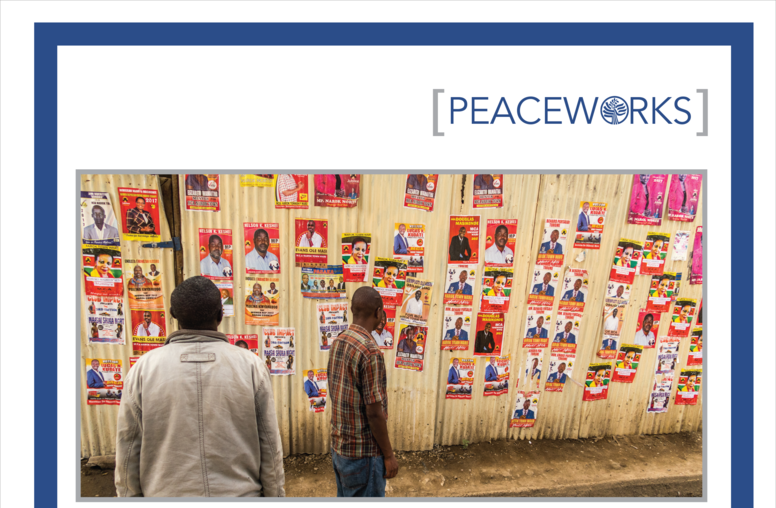
What Works in Preventing Election Violence
Drawing on extensive field research in Kenya and Liberia around the 2017 elections in those countries, this report uses local survey data to evaluate the effectiveness of seven prevention measures thought to reduce the risk of election violence. Its recommendations, directed primarily to the international community but offering...
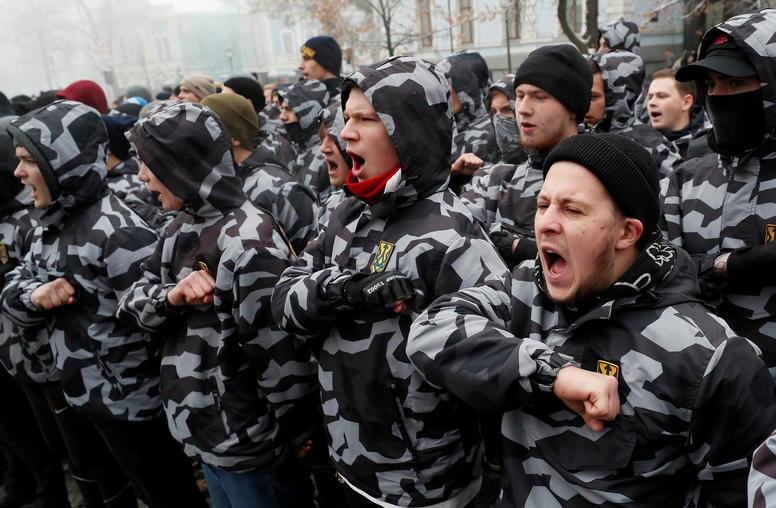
Preventing Violence During Ukraine’s 2019 Elections
Ukraine’s 2019 presidential and parliamentary elections will take place against a tense backdrop of Russian aggression, ongoing conflict in the Donbas region, and a momentous split in the Ukrainian and Russian Orthodox churches. This Special Report, based on an assessment conducted by USIP in late 2018, identifies...
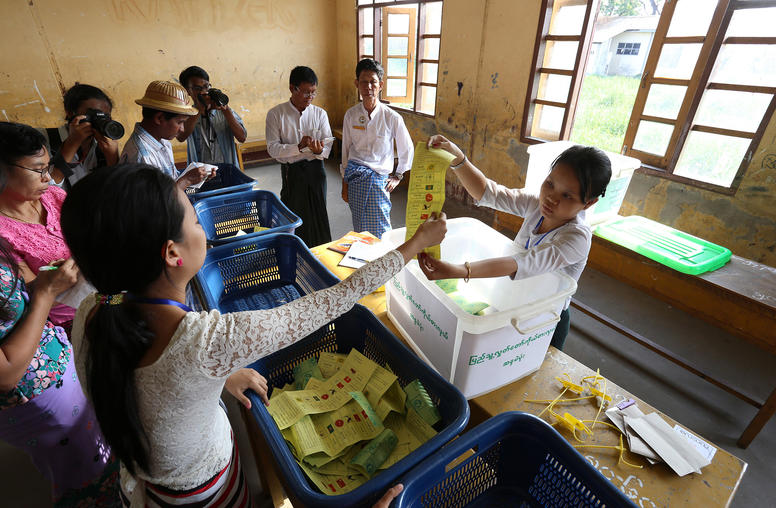
Myanmar’s 2020 Elections and Conflict Dynamics
In late 2020, Myanmar will hold a general election for more than a thousand seats in Union, state, and regional legislative bodies. The next year and a half will also see two high-level, conflict-laden processes capture domestic and international attention—the 21st Century Panglong peace conference and possible attempts to repatriate Rohingya refugees. This report evaluates the environment in which the peace process, Rohingya repatriation, and the election intersect and identifies opportunities for mitigating conflict in the run-up to the election.
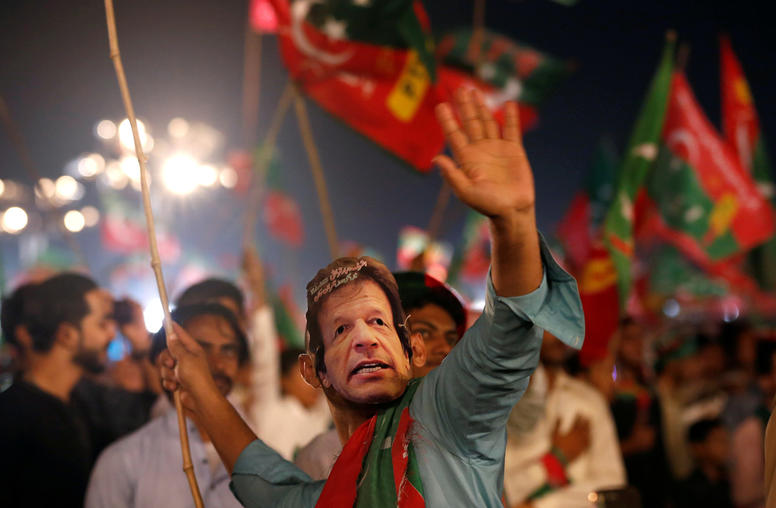
Exposure to Violence and Voting in Karachi, Pakistan
Pakistan’s 2018 elections marked just the second time in history that power transferred peacefully from one civilian government to another after a full term in office. Although the initial months of campaigning were relatively free of violence, the two weeks before polling were dangerous for campaigners and voters alike, and the elections provided a platform for some parties to incite violence, particularly against Pakistan’s minority sects. This report provides a deep examination of how exposure to political violence in Pakistan’s largest city affects political behavior, including willingness to vote and faith in the democratic process.
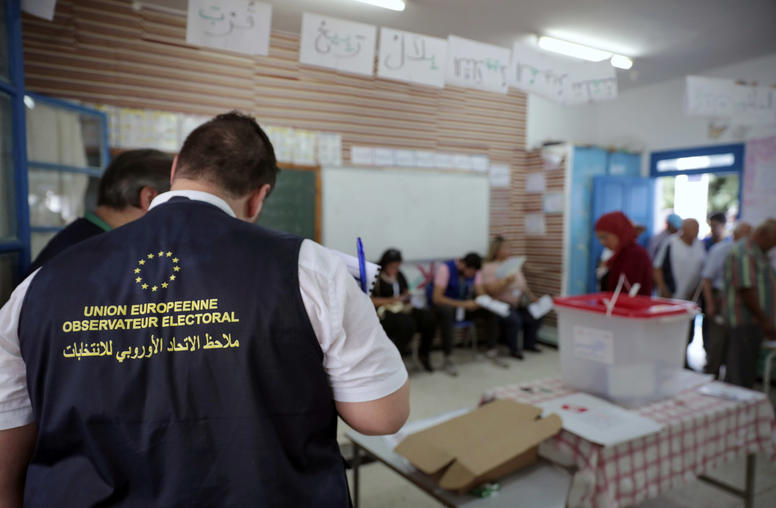
Violence Prevention through Election Observation
For many years, election-related violence has posed a serious threat to the integrity of electoral processes worldwide. To prevent or minimize such violence, the international community has often relied upon election observation missions, which incorporate an extended on-the-ground presence and proactive mediation by international and domestic actors. This report discusses the challenge observer missions face in confronting election violence, and suggests how preventive efforts can be enhanced through improved, multi-mandate observation practices.
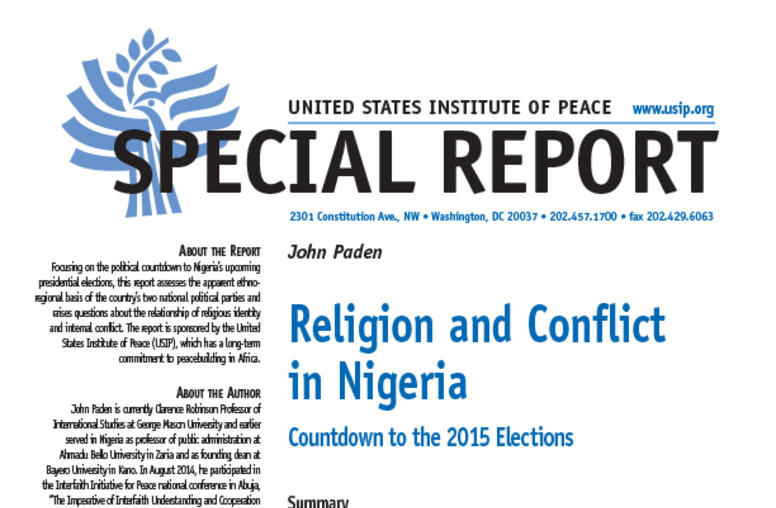
Religion and Conflict in Nigeria
Nigeria—its vast population evenly split between Muslim and Christian—is counting down to another presidential election, scheduled for February 2015. This report raises a number of questions about the relationship of religious identity and internal conflict and the consequences of a polarized election. Do religious symbols exacerbate or mitigate conflict, especially during an electoral season? What are the interfaith efforts to ameliorate or mitigate ethno-religious conflict? What are the con...
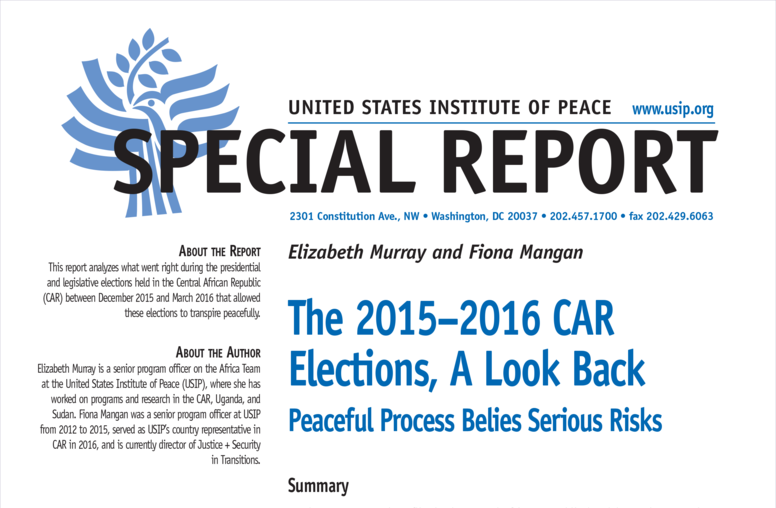
The 2015–2016 Central African Republic Elections, A Look Back
Plagued by successive coups and waves of violent conflict since its independence in 1960, the Central African Republic managed to hold its first peaceful elections in late 2015 and early 2016. Fears of widespread violence proved unfounded. This report focuses on what went right in those elections and how those conditions have not held a year later, allowing violence to return to the country.
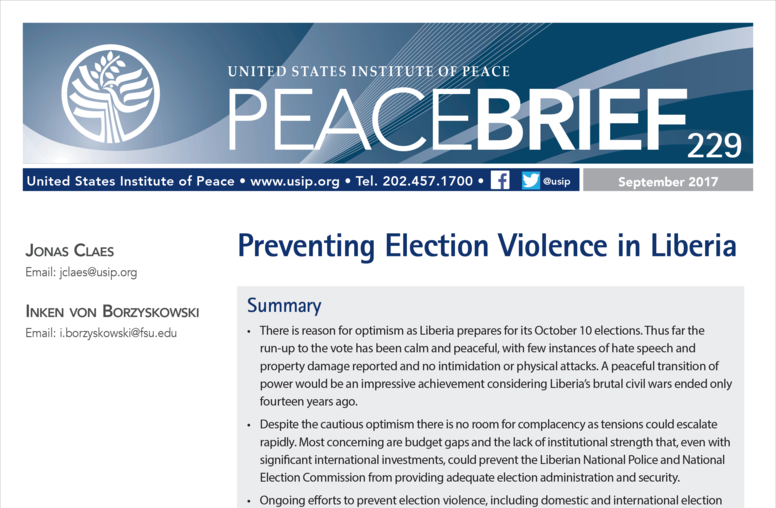
Preventing Election Violence in Liberia
Liberia will hold presidential and legislative elections on October 10. The run-up to the vote has been primarily peaceful, and the country has engaged in ongoing efforts to prevent election violence. This Peace Brief, based on USIP research, assesses the risk of election violence and the scope of violence prevention efforts, and provides recommendations for ongoing prevention.
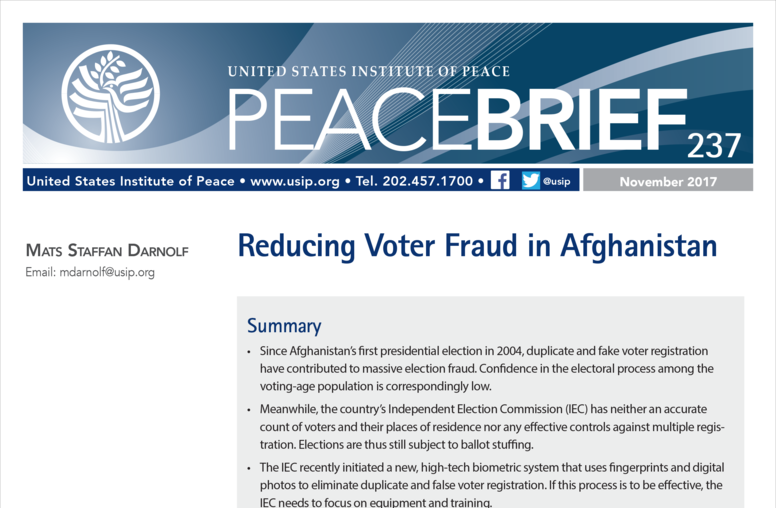
Reducing Voter Fraud in Afghanistan
Since Afghanistan’s first presidential election in 2004, massive election fraud and malpractices have been the rule. Confidence in the electoral process among the population is correspondingly low. As this Peace Brief explains, a new biometric voter registration system has...

The 2021 India-Pakistan Ceasefire: Origins, Prospects, and Lessons Learned
The February 2021 ceasefire between India and Pakistan along the Line of Control in Kashmir has—despite occasional violations—turned into one of the longest-lasting in the countries’ 75-year shared history. Yet, as Christopher Clary writes, the ceasefire remains vulnerable to shocks from terrorist attacks, changes in leadership, and shifting regional relations. With the ceasefire approaching its third anniversary, Clary’s report examines the factors that have allowed it to succeed, signs that it may be fraying, and steps that can be taken to sustain it.